Interview with an Aviator: The Flying Ivans
In the latest installment of Interview with an Aviator, we sat down with Jet Linx pilots (and identical twins) Ivan J. Pacheco and Ivan R. Pacheco.
All Jet Linx flights require two pilots on board – no exceptions. However, our clients flying out of our Boca Raton location since the Jet Linx acquisition of Southern Jet may have thought their eyes were playing tricks on them. However, there has been no mistake – there are two Ivan Pacheco’s – identical twins both on the flight deck for Jet Linx.
Previously flying for Southern Jet, Ivan J. (Jose) and Ivan R. (Ramon) Pacheco bring a double dose of Five-Star service to every flight, along with plenty of smiles and heartfelt laughter.
While the Flying Ivans may look alike, they each bring unique stories to this edition of Interview with an Aviator. Both veterans of separate branches of the Venezuelan military, these twin aviators bring a plethora of flight experience to the Jet Linx team in South Florida.
Drawing on one another’s unique backgrounds – from flying fighter jets to search and rescue missions in South America – the Pacheco brothers continue to support one another to become better pilots with each passing flight. Learn more about the Flying Ivans in our latest edition of Interview with an Aviator!
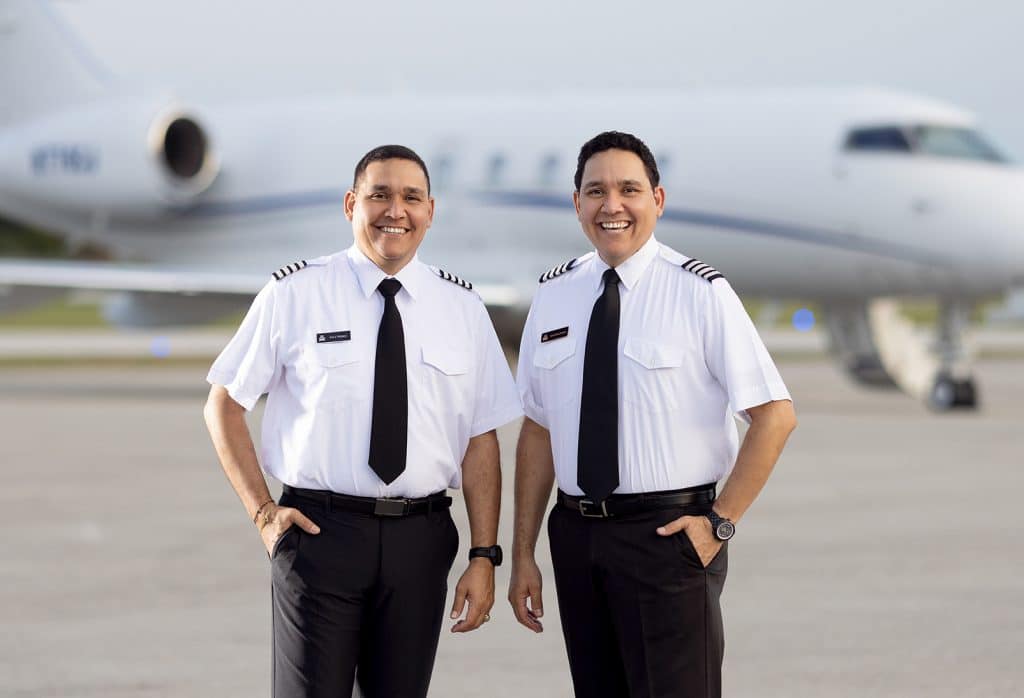
Tell us about your background.
IVAN RAMON (IR): My twin brother and I were born in Venezuela in a city called Puerto Cabello in Carabobo State in 1979. In total, there are five siblings, and we were all born in Venezuela but have now moved to the United States, including our mother.
When we were five years old, we created airplane landing strips in our backyard and we began to make paper airplanes. Every time that we played together, it had something to do with airplanes. We don’t really know why, but we just loved airplanes.
IVAN JOSE (IJ): Many people ask us which brother was born first, and the truth is that we don’t know. Our mother was smart, and she never told us who was born first. This way, we could not argue as children over who was older.
When we were 10 years old, we moved to Maracaibo to attend a military high school and we graduated at age 15. Our education at the military high school allowed us to join and train to become pilots and officers in the Air Force and Navy, respectively.
Are you identical twins?
IR: Yes, we are identical twins. I always considered it an advantage, and we always joked about it until only one of us was allowed to join the Air Force. Because we are identical twins, it posed a security risk. They thought it was possible that we might take tests for one another or fly for each other. Were a little sad to hear this, but we both found a way to become military pilots. At that time, I decided to join the Navy because I knew I could learn a lot of skills and still become a pilot one day. Two years after graduating from the Naval Academy, I applied to Naval Flight School. I had to take an admission test, and because I was in the top five in my class, I was then sent to the Air Force to begin training to become a pilot.
We used to pull pranks in high school. For example, I was very good at chemistry so sometimes I would go to class for my brother. We even sometimes traded clothes and wallets so our teacher’s truly didn’t know who was who.
However, people also mistake us as adults. Even today sometimes our kids mistake us for the wrong twin. When training for a new type rating at CAE, I was accidentally given my brother’s certificate to fly the Challenger 300! Though as we are getting older, we are not quite as identical as we once were.
When did your interest in aviation begin?
IJ: Ever since I can remember, I have wanted to be a pilot in a fighter jet. Like my brother said, many of the activities in our childhood involved airplanes – building little runways in our backyard and constructing paper airplanes. However, when I was older, there was a film in the 1980s called An Officer and a Gentleman that also inspired me to pursue my dreams of becoming a fighter pilot.
IR: I can’t name a specific time, I just always loved planes. Both my brother and I were fascinated and wanted to become pilots. None of our relatives were involved in the military or in aviation. It was just something we were always drawn to.
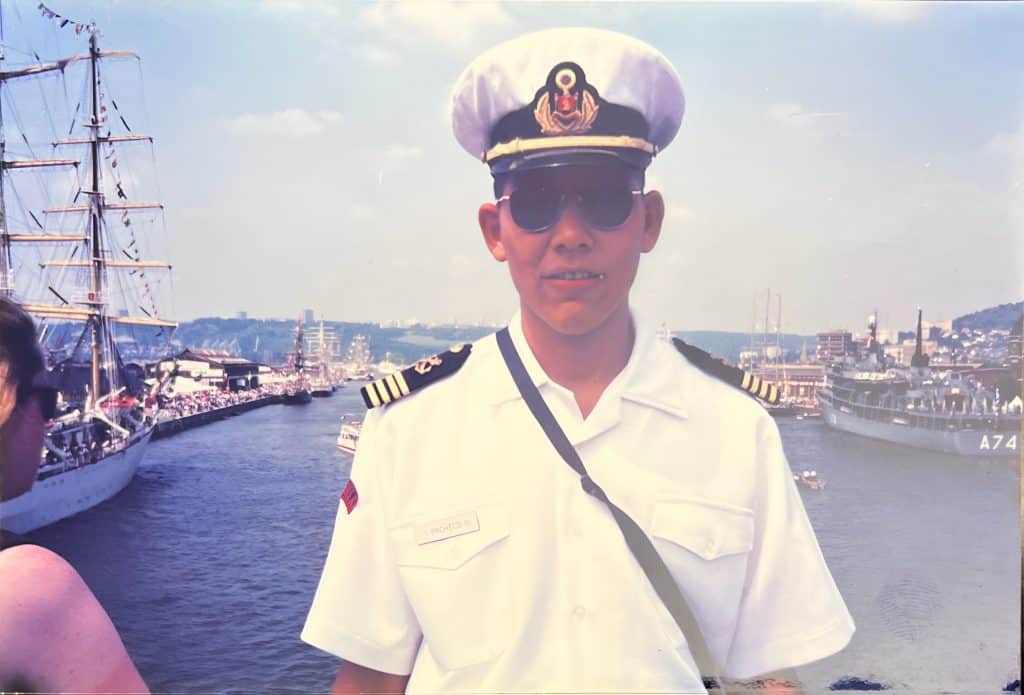
What was your career path prior to Jet Linx?
IJ: My path to becoming a pilot began when I was ten years old and enrolled in the military high school in Maracaibo City. That education allowed me to apply to join the Air Force Academy.
Within the Venezuelan Air Force, I was assigned to the #12 Fighter Group at Lieutenant Vicente Landaeta Gil Air Base in Barquisimeto, Venezuela. In my time with the Air Force, I flew a Northrop F-5. Flying on those aircraft was one of the best experiences of my life. It’s tough to describe the feeling – you have so much power in your hands. In the Air Force, I also flew a Beechcraft Queen Air B-80, c-208 Caravan and C-206T. All of these aircraft provided me with good training for the future. I was in the Air Force from 2001 to 2008, and during this time I also met and married my wife Heberly. We now have three beautiful children –Esteban, Marcella and Leah.
After retiring from the Air Force in 2008, I began my career in civil aviation. I began working for a Search and Rescue service, where I became a Chief Pilot and Flight Instructor while flying a Twin Star DA-42 before taking a job in corporate aviation.
Venezuela has one of the largest fleets of private jets in South America, so I was able to fly aircraft such as the Gulfstream AC90, Citation 1, Citation 2, Westwind 1, Westwind 2, Lear 31, Lear 35, Lear 55, Hawker 700, Hawker 800 – and also a Falcon 50B. I was flying in Venezuela until about 2013, and in 2014 I began to start the process of immigration to the US. In 2015, my family and I moved from Venezuela to the U.S.
IR: In 1996, I joined the Navy Academy and I served there until 2013 when I left with the rank of a Lieutenant. I joined the Navy Flight School in 1998 and that’s when I began training to become a pilot. In the Venezuelan military, I flew a CASA C-212 Aviocar which is a Spanish-made cargo plane.
In 2013, I retired from the military and began thinking about becoming a civil pilot. As a military cargo pilot you might think joining the Venezuelan airlines was a good idea, but you had to know someone or have a relative to find a good job. However, do to the size of the private jet fleet in Venezuela, I found a job as a pilot flying domestic and international trips. I flew on a Westwind, which is an Israeli-made airplane. That was a nice plane to learn to fly because it is similar to flying a DC-9, which requires a lot of discipline and training. So, between 2013 and 2016 I was working with a private company flying international routes to places like Miami, Mexico, Colombia and the Dominican Republic. This job allowed me to gain experience as a private pilot, and also allowed me to eventually come and work in the United States with Southern Jet.
My first flight at Southern Jet was actually with my brother (IJ), and now that I am training to fly a Challenger 300, I will be flying with my brother again as a Jet Linx pilot. We find this very funny, but we hope not to confuse any passengers.
What is your favorite aspect of working for Jet Linx?
IJ: At Southern Jet, we were a very small, tight-knit team and we all worked well together. However, I think Jet Linx has a similar feel – like we are all family. The transition from Southern Jet to Jet Linx overall went well and I feel confident about the new direction of the company. Our team is a lot larger now, but we feel more supported. Although there are many new procedures and protocols, it’s for the best. Jet Linx always puts me in the best position to succeed.
IR: Jet Linx has a strong culture of professionalism, and everyone is very dedicated to serving the customers. Just in a few months, I was nominated for and eventually I won a ‘Supply the High’ award in May 2022. Jet Linx does a good job rewarding and recognizing our efforts, and we take care of our clients very well. It has a very nice family atmosphere, even for a large company. I enjoyed working at Southern Jet because our team was small and we knew everyone well – I feel the same at Jet Linx.
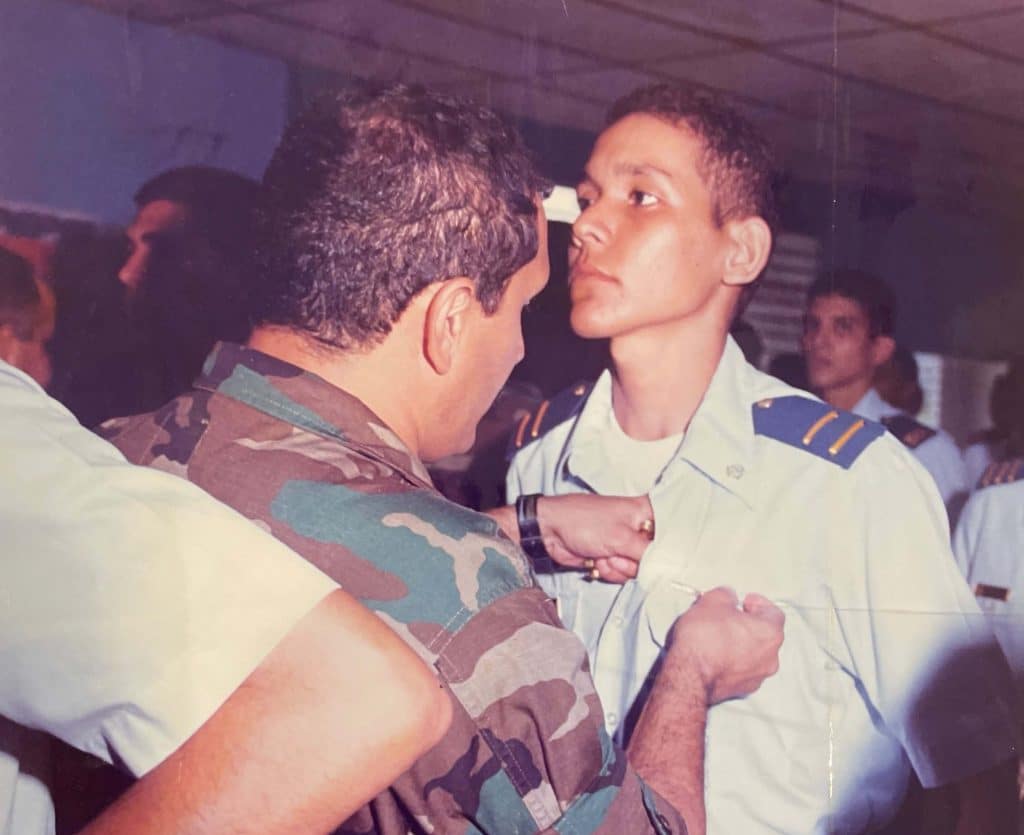
What are your thoughts on the Jet Linx safety culture?
IR: The safety culture at Jet Linx is impressive! Coming from the military, I am amazed with the attention to detail that is taken to ensure safety on every trip. We review SOPs, safety procedures, how to mitigate any potential risk, and more – all on a consistent basis. I am also impressed with the Safety Summit. There are no other companies like ours that cease operations for a day, and that shows a true commitment to improving our safety practices and strengthening our safety culture. Even compared to the private airlines in Venezuela, the standard of safety is higher here.
IJ: Coming from the military, I also think that Jet Linx is very safe. When I flew for corporations in South America, you were on your own a lot of the time. At Jet Linx the standard of safety is amazing. There are a lot of rules that you must follow closely, and many checklists and standard operating procedures, which are very similar to the many layers of safety we had in the Air Force. Jet Linx truly values safety.
Being twins, do you push one another to improve, or is there a sense of competition?
IJ: I don’t think Ramon and I see it as a competition. We try to help one another succeed. I do have more flight hours than him because I began flying earlier, and maybe he could be jealous, but I don’t think so. Now that we will be flying the same type of aircraft, maybe I can teach him some things and get him adjusted more quickly. At the end of the day, we just want to help each other.
IR: My brother and I have always been a team despite being on different paths at times. I don’t think there is a competition between us, we just like to see each other succeed and do well. However, when it comes to flight hours, my brother does have more than me, which we sometimes laugh about. But at the end of the day, we want to help each other, especially now that we also fly the same type of aircraft.
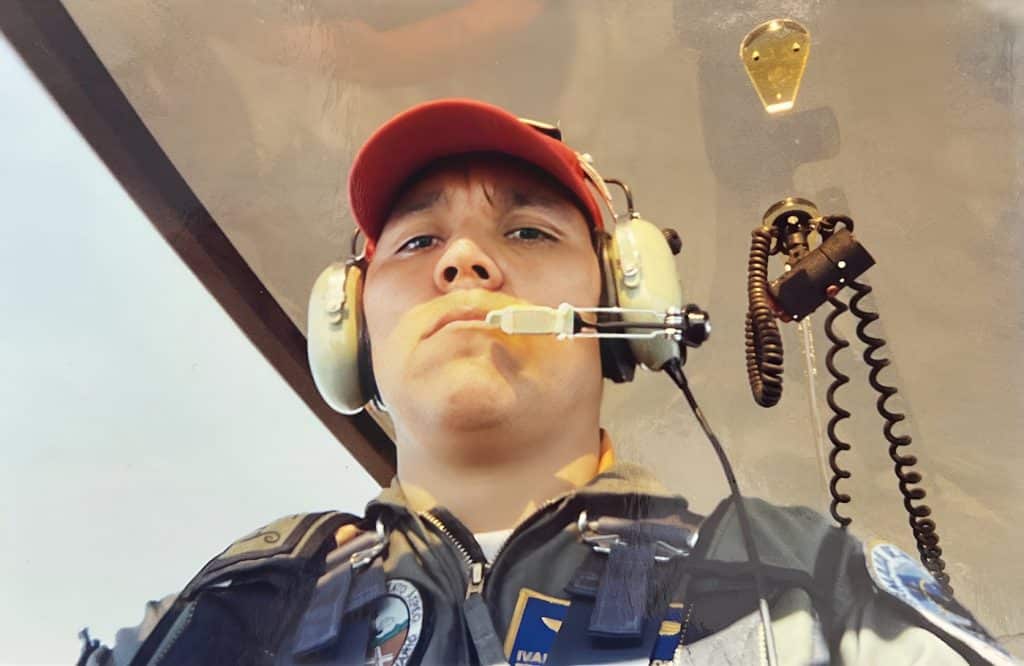
Throughout your aviation career, what have been your favorite destinations, or unique destinations?
IJ: Truly any destination is nice, but my favorite approach is anywhere in the mountains of Colorado when the snow is on the ground. It’s so white and beautiful. Colorado is also one of my favorite places to visit.
IR: From the moment I draw up the flight plan to the takeoff point on the runway, every destination is exciting. Also, there are only four states in the US that I have not gotten to visit yet: Oregon, Alaska, Hawaii and North Dakota. I hope to see them all one day!
What are you hobbies or interests outside of aviation?
IJ: I mostly spend time with my family and three kids. They keep me busy between soccer games and my daughter also likes to ice skate. One of my friends, Steve Neary, has a small plane, so sometimes I fly that – but most of my time is spent with family. We live only a few minutes from Ramon and his family, so our children always want to see each other and play together.
IR: Yes, like my brother said, I don’t have too many hobbies outside of work because my time is mostly spent with my family. We both enjoy spending time with our kids and our extended families, especially when we can get together for a nice barbeque. We especially like to cook picanha, which is a thick type of sirloin that’s popular in Brazil and other parts of South America. We like to skewer it and cook it over charcoals – there’s nothing better than sharing picanha with friends and family.
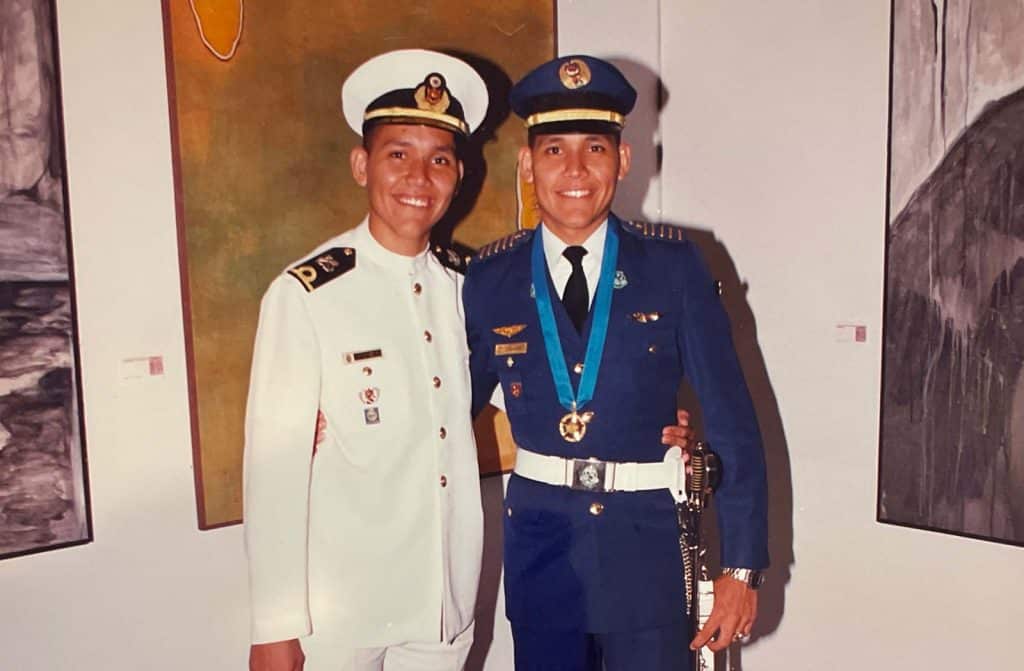
What advice would you give to a younger version of yourself or an aspiring aviator?
IJ: You must follow your goal. When I was young, it was hard to enter the Air Force, but I endured and never gave up on my dreams of becoming a fighter pilot. When you follow your dreams and then achieve them, you’ll only have more dreams to chase. You can become anything you want as long as you never stop chasing your dreams.
IR: I would tell myself to keep trusting his instincts and that no matter how many obstacles he faces, it will all be worth it. Also, find a mentor to guide you through the times where you might be doubting yourself. Aviation can be difficult and sometimes lonely, so be sure to have someone that can offer advice and support. Luckily, we have always had each other, but we also have had good mentors to help us along the way in our different paths.
Related Stories
Celebrating the Women of Jet Linx
In celebration of Women’s History Month, Jet Linx proudly presents the stories of some the women in our leadership and those excelling in the cockpit.
READ MORE
Celebrating 25 Years: The Inception
From inception to the present – Jet Linx was built to be your partner in private aviation.
READ MORE
Interview with an Aviator: Victor Alvarez
In the latest installment of Interview with an Aviator, we sat down with Victor Alvarez, Jet Linx Boca Raton Pilot.
READ MORE
Related Stories
Celebrating the Women of Jet Linx
In celebration of Women’s History Month, Jet Linx proudly presents the stories of some the women in our leadership and those excelling in the cockpit.
READ MORE
Celebrating 25 Years: The Inception
From inception to the present – Jet Linx was built to be your partner in private aviation.
READ MORE
Interview with an Aviator: Victor Alvarez
In the latest installment of Interview with an Aviator, we sat down with Victor Alvarez, Jet Linx Boca Raton Pilot.
READ MORE



Contact Us